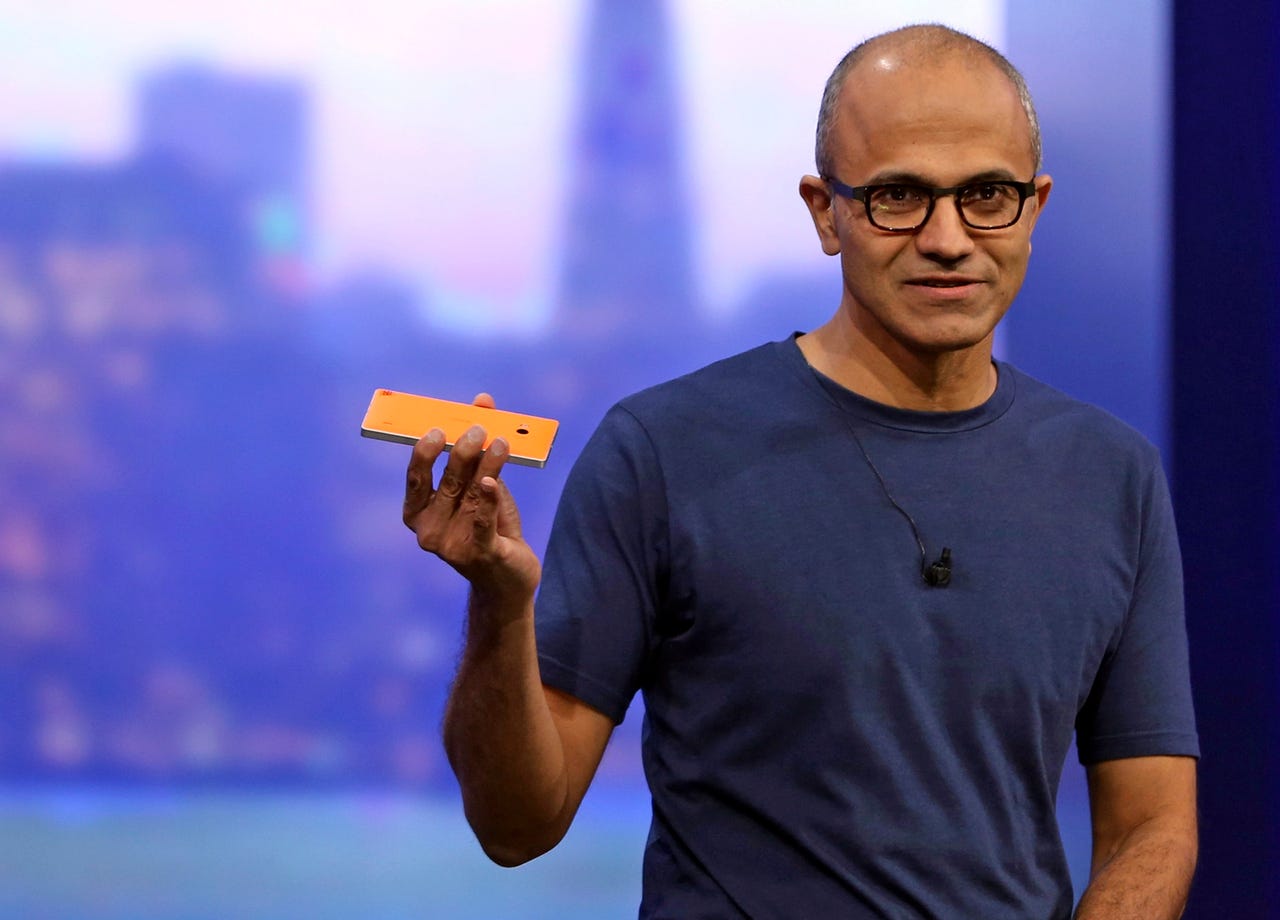Microsoft expands Azure cloud into new regions as Nadella commits to hyperscale vision


Nadella confirmed that from late 2016, Microsoft will begin offering commercial cloud services from UK-based datacentres, starting with Microsoft Azure and Office 365 and shortly followed by Dynamics CRM Online.
Alongside this pledge, Microsoft also announced it has completed work on expanding its datacentre facilities in Ireland and the Netherlands, which serve as cloud computing hubs for Microsoft customers in Europe.
"It marks a huge milestone and commitment on our part to make sure we build the most hyperscale public cloud that operates around the world," he told the Microsoft Future Decoded event in London.
"We do this so we can deliver on these bold ambitions, so we can empower you as individual developers or users of services within enterprises, to deliver to you more of the technology that you need."
By opening UK-based datacentres, Microsoft will be able to cater for customers that have a requirement that data stays within the country's borders, as well as providing lower latency services for domestic companies.
The UK government's Ministry of Defence has expressed an interest in using Microsoft's cloud services, once the UK facilities are up and running.
A number of major businesses in the UK already use Microsoft's cloud services, including retailer Marks & Spencer, online money saving portal Confused.com, and Virgin Atlantic.
Microsoft has invested more than $15bn in building a cloud infrastructure and cloud services, with 24 Azure regions around the world. However, Azure lags some way behind Amazon Web Services in size and public cloud market share: AWS is bigger than its next four largest competitors.
Microsoft is doing a good job of being the best of the rest, with analyst house Forrester estimating that Azure has double the cloud platform revenue of its enterprise competition, including Oracle and IBM.
However, Microsoft recently dealt a blow to Office 365 subscribers by reneging on a promise to offer subscribers unlimited OneDrive storage, with the actual size reduced to 1TB.
To match customer demand, Microsoft has recently expanded the range of Linux-based virtual machines available on its Azure cloud platform, adding support for Red Hat to a list that already includes Ubuntu, Centos, Oracle Linux, SUSE Linux Enterprise, and openSUSE. Under a partnership deal with Red Hat, Microsoft will also be making JBOSS middleware available on Azure in the coming weeks.
Microsoft also plans to release Azure Stack, a cloud operating system that will allow organisations to run an Azure-like platform on premise, simplifying the process of swapping data and applications between the public and private cloud. Azure Stack is a combination of Windows Server 2016, Azure Pack, and Azure Service Fabric.
"That true hybrid computing is going to be important for any organisation," said Nadella.
The ubiquitous compute and storage provided by the cloud will be vital to support the data-driven nature of the next-generation of software, he said.
Five years in the future, Nadella said firms will rely on the "ability to build an application that converts data from exhaust into fuel".
Combined with the array of on-demand machine learning services that Microsoft offers through its Cortana virtual assistant, AzureML, and Project Oxford, Nadella said Microsoft's cloud expansion will allow the firm to achieve one of its core ambitions, to build out "the intelligent cloud".
"All of that sophistication of at-scale machine learning is now available to every startup and every developer to be able to build this next generation of data-driven apps."
Microsoft is using its Azure machine learning service to augment its existing business offerings, most recently tying it into its Dynamics CRM 2016 platform, where it will aid in analytics. Another recent addition to Office 365, called Office Delve, uses machine learning to show users the most relevant content in their emails, meetings, contacts, social networks, and documents.
Microsoft's two other two key goals, according to Nadella, are to reinvent productivity and business processes through software such as Power BI and Delve and PC/phone hybrids such as the Lumia 950XL, and to redefine personal computing via Windows on non-traditional devices such as the Raspberry Pi and augmented reality headset HoloLens.
Read more about Microsoft Azure